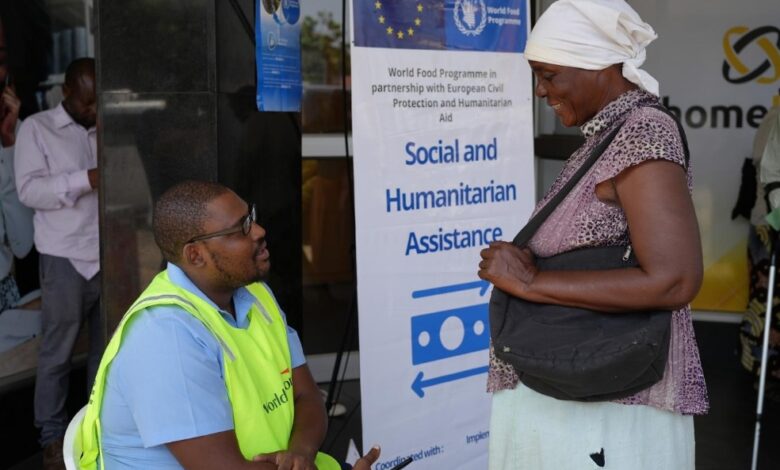EU and WFP battle soaring hunger amidst crisis in Zimbabwe

A perfect storm of economic hardship, climate shocks, and conflict has pushed millions in Southern Africa to the brink of starvation. In Zimbabwe, a joint effort by the European Union and the World Food Programme is providing a lifeline to struggling families.
The economic fallout of COVID-19, coupled with soaring energy prices, Russia’s invasion of Ukraine, and extreme weather events, has exacerbated food insecurity globally. Zimbabwe has not been spared, with rising inflation and unemployment pushing many into crisis.
Egnetta, a widowed matriarch of 20 in southwestern Zimbabwe, is a prime example of the challenges faced by countless households. Overburdened with familial responsibilities, she struggles to provide for her family in a country where food prices are skyrocketing.
“I’m the parent here, I’m responsible for everything,” she says, her voice heavy with the weight of her responsibilities. With a family this size, finding employment is nearly impossible, leaving her to navigate a landscape of skyrocketing food prices and dwindling resources.
Up to a third of Zimbabweans in urban areas are unable to afford nutritious meals. The WFP’s cash assistance program is a lifeline, empowering people like Egnetta to purchase essential food and other necessities.
“Life used to be better … but now our money can’t buy as much,” she laments. “We could go for 2 or 3 days without food. The grandchildren would survive on porridge, and the adults would skip meals.”
With the financial support, Egnetta can now prioritize her family’s nutrition and education. “I want to see my grandchildren succeed and have a better life than what I experienced,” she says, her determination undeterred by adversity.
The EU-WFP partnership is a source of hope in a region grappling with hunger. By providing critical assistance, they are not only alleviating immediate suffering but also investing in the future of communities like Egnetta’s. Source: WFP





